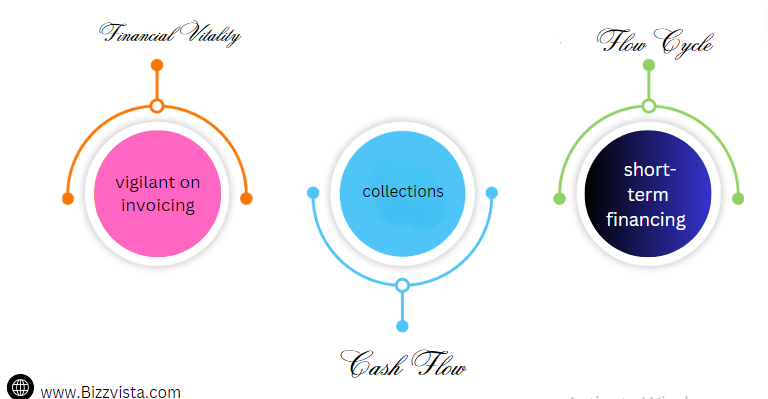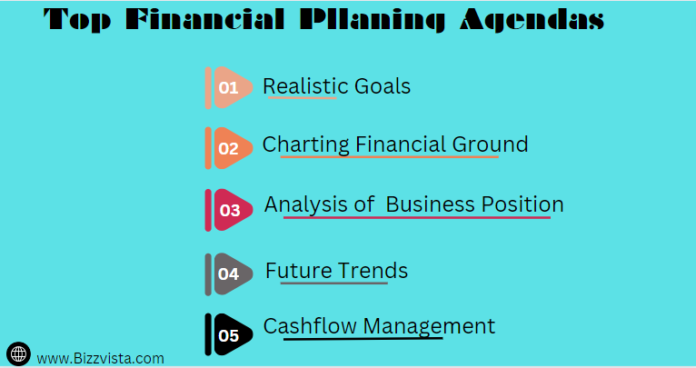What Is a Financial Plan?
Financial planning is a process offers the step by step guiding principles that manages the entire business machinery in a delicate way. Without a doubt, it is a clearly chalked-out set of records that one can use to articulate and manage the finances of their business. The significance of it in the income distribution lies in how these resources would be circulated and if the prices and operations will be efficient, to decide if the businesses will be expanded or not. The financial plan is an astronomical tool that shows what the company is making and selling today; it is the yardstick that is used to measure how the company is growing and developing and how feasible the idea is for success. Economic plans may be redefined in the course of time when forecasts are replaced with actual results of substantiating market forces change.
Setting Realistic Financial Goals
A successful financial journey for a micro business begins with crafting an achievable ,clearly settled objectives. From managing capital flow to mapping-out long term goals including retirement and estate planning are all part of this broader strategy. Ensure these goals are achievable and realistic, preventing frustration and maintaining motivation. Assign timeframes to each goal, providing a structured roadmap for success. Remember, discipline and dedication are key ingredients in transforming goals into tangible achievements.
Charting Financial Ground Prudently
Navigating the financial landscape of your business is a vital aspect of financial planning. To kickstart this process, taking into understanding your business’s financial starting point. This involves crunching numbers to calculate your revenue, classifying expenses into fixed and variable categories, and evaluating any outstanding debts. With this information in hand, you can then proceed to craft a comprehensive financial plan for your business. This plan should feature a budget, detailing how revenue will cover expenses and address debts. By deciphering your financial foundation, you pave the way for a robust and effective financial strategy.

Insightful Analysis of Your Business’s Financial Position
Small business success hinges on a nuanced comprehension of your current financial situation. Key elements to consider include scrutinizing revenue and expenses, detailing assets and liabilities, and establishing clear financial goals. Categorize expenses like advertising, rent, salaries, and inventory to identify potential cost-cutting areas. Determine your business’s net worth by assessing current and outstanding balances of assets and liabilities. This thorough analysis empowers informed decision-making for sustained growth.
Anticipating Future Trends: Sales and Expenses Forecast
Forecasting sales and expenses is the compass guiding small businesses through financial terrain. Utilize historical data, market trends, or a combination to predict future financial landscapes. Track data from accounting software, POS systems, or CRMs to identify patterns and trends. This foresight enables strategic decisions, such as hiring staff or investing in equipment, fostering informed and resilient financial management.
Mastery of Cash Flow Management
Mastering cash flow is a cornerstone of financial planning for small businesses. Understand your cash flow cycle, plan for lean periods, stay vigilant on invoicing and collections, and manage inventory judiciously. In times of low cash flow, explore short-term financing options. By implementing these practices, you ensure your business has the financial vitality to navigate challenges and capitalize on opportunities.

Accessing Capital Wisely
Small companies are the ones that contribute to the development and growth of the economy, but getting credits for the business growth is a challenge. And so bank loans – the way the industry often has gone about things – has some disadvantages, but there are some other sources of funds that could be worth exploring. Take into account some of the alternatives led by SBA loans, business credit cards, merchant cash advances, invoice financing,investors and venture capital firms. Each schedule has its specific attributes that assures that the business has the way of operation, which is best for them, since there exist different business sizes and structures.
Safeguarding Your Business
In the dynamic environment of small businesses which is increasingly fragile to risks, risk protection is indeed requisite. Invest seriously in sufficient insurance coverage custom made to your company. Forge sound internal control systems that ought to include policies that are aimed at thwarting fraud and providing security against your assets. Maintain a strong and functioning cash flow, develop partnerships with financial institutions, and compile information from the market. Such buy-proactive measures not only strengthen your business to avoid unexpected harsh avenues, but they also pave a long-time financial success.
Synergizing Your Financial Plan
Small business owners usually handle multiple tasks, so most of them find it difficult to have an overall financial plan for materials needed for start-up companies.Simultaneously they maintain tracking of expenses, debts, and other financial resources. Although it is unlikely one will say ‘yes’ to everything, but one can stick to a simple strategic plan and use proven practices that can make this whole process more bearable. First, assess your current financial situation and use Excel templates in studying cash flows. This will help determine the targets you can meet within the period you plan. A well-designed financial plan serves as an invaluable tool, steering your small business towards sustained success.
Conclusion
The financial planning pathway for small businesses comprises multiple aspects, therefore it is necessary to be very careful, flexible, and have a strategic mind-set. In accordance with these guidelines provided, your small business can find its directions through the storm of financial complexities where it is also capable of grasping opportunities as well as becoming stronger with each passing market transition. While it’s important to know , it’s not just a way but also a progressive tool for your business that leads all the way to a good future.
FAQs
Why is financial planning crucial for small businesses?
Financial planning is the compass guiding small businesses through economic landscapes. It provides a roadmap for sustainable growth, helping businesses navigate challenges and capitalize on opportunities.
How can small business owners simplify the financial planning process?
Simplifying financial planning involves breaking down complex tasks into manageable steps. Start by understanding your current financial state, setting achievable goals, and consistently monitoring progress.
What role does adaptability play in financial planning for small businesses?
Adaptability is key in the ever-changing business environment. Financial plans should be flexible, allowing businesses to adjust strategies based on market shifts, ensuring resilience and long-term success.
How can small businesses foster healthy cash flow?
Maintaining a healthy cash flow involves proactive measures like prompt invoicing, careful inventory management, and having contingency plans for lean periods. It’s a cornerstone of financial stability.
Are there government programs or resources that aid small businesses in financial planning?
Yes, programs like SBA loans and resources from Small Business Development Centers (SBDCs) provide valuable support. These initiatives offer financial tools, counseling, and access to capital for small businesses.




